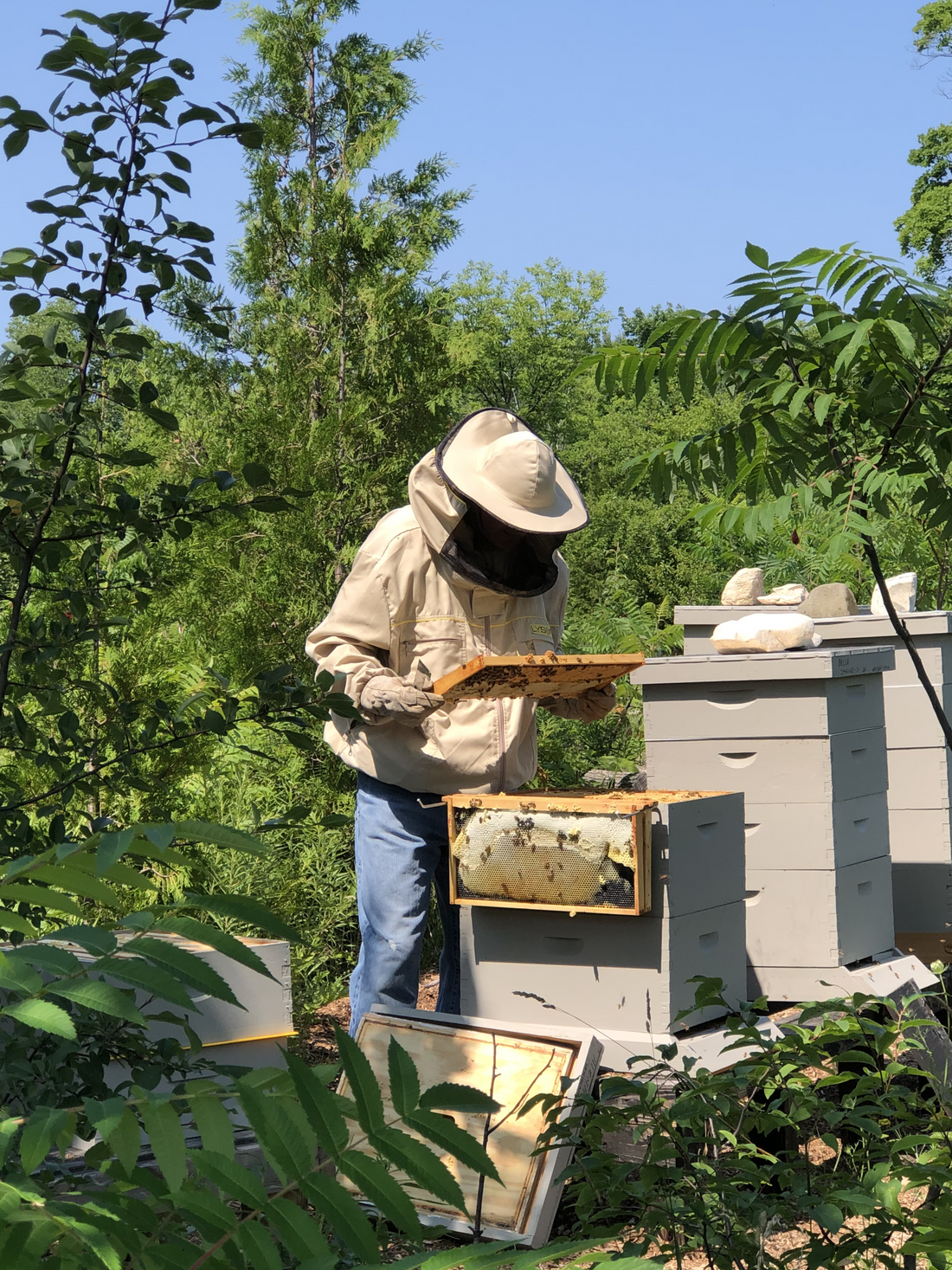

The unofficial science of beekeeping
By Doug O'Leary
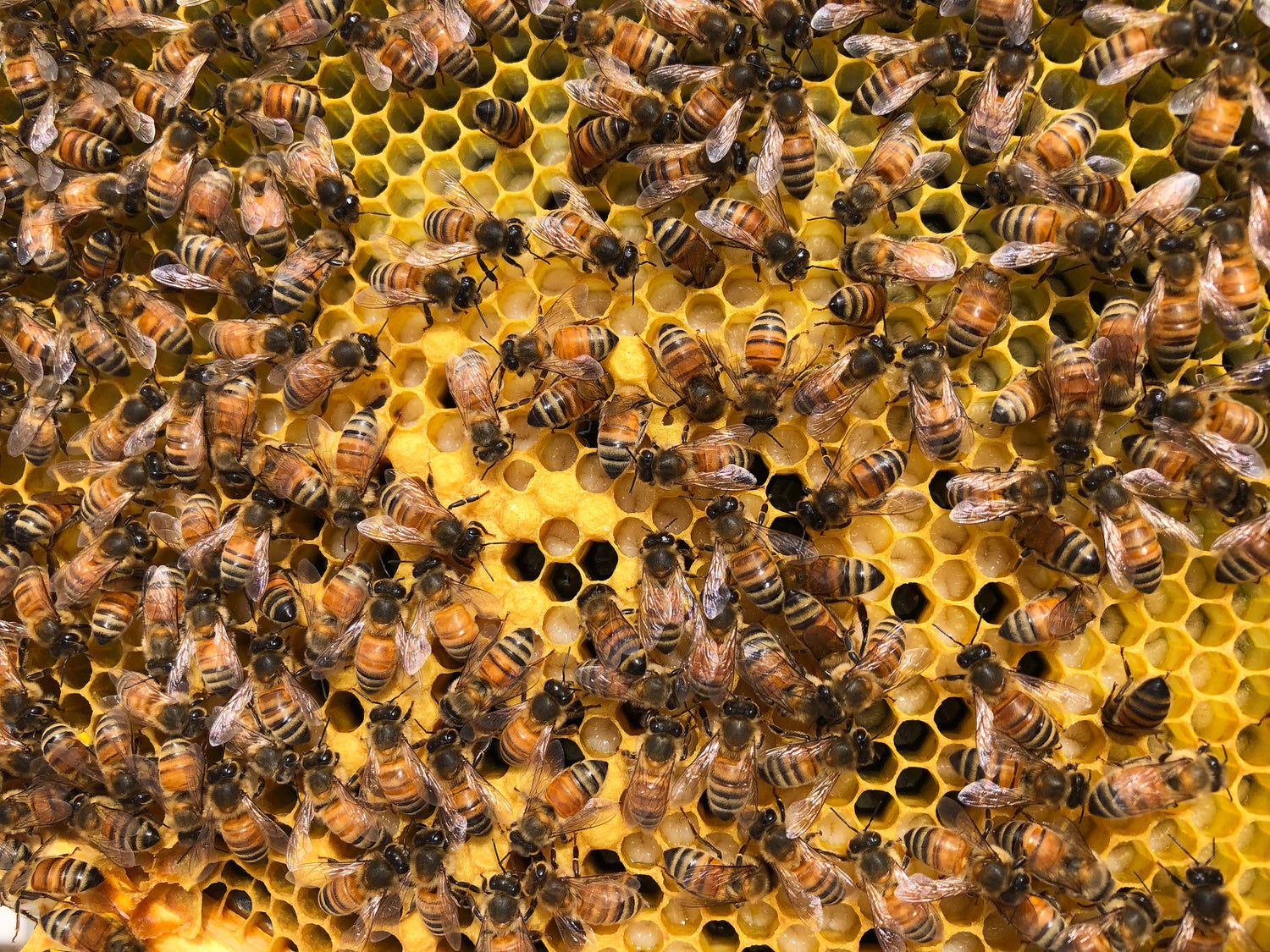
I’ve been asked so many times over the years, “Why do you raise honey bees?”
It started as an idea to increase our yields in our orchard, our vegetable gardens, and our massive flower beds. I joined my local county beekeeper group, read everything I could on how to be a responsible beekeeper, and determined that I could do this.
In the beginning, I learned a lot from inspecting my bees regularly and keeping notes on the positives and negatives. I did many things I wish I could do over now, but beekeeping is not a perfect science. There is no right way or wrong way to raise honey bees.
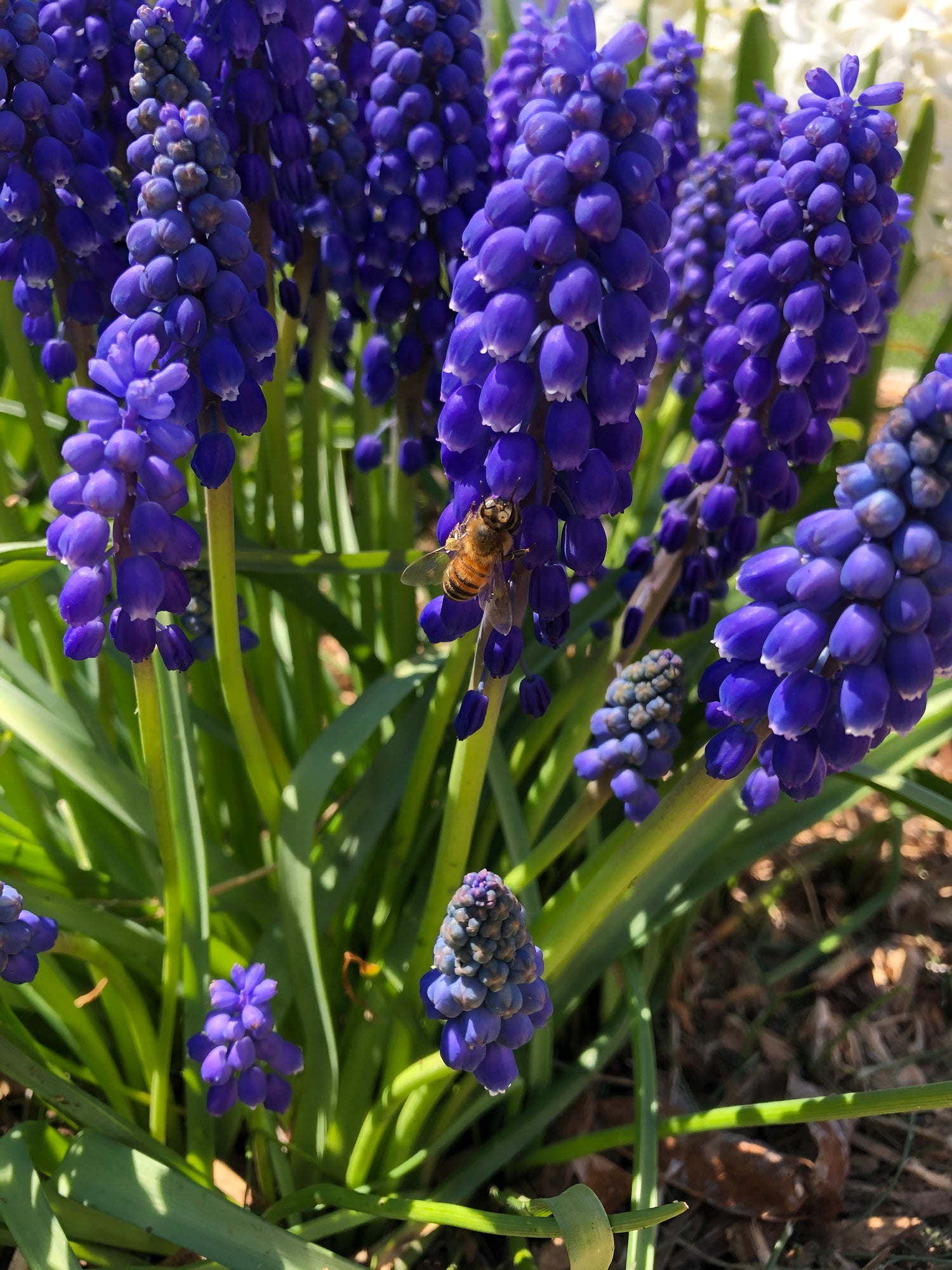
There are many different ways to be successful. That being said, bees can take care of themselves quite efficiently. They work hard from the time they emerge to the day they die. They serve and protect the queen, and do many different jobs during their short life. They clean the hive, feed the queen and larvae, and transfer pollen, nectar, water, and honey to where it’s needed. They build wax comb, guard the entrance, and regulate the temperature inside the hive all year long. Finally, they forage all day while the sun is out for pollen, nectar, and water until the day they die.
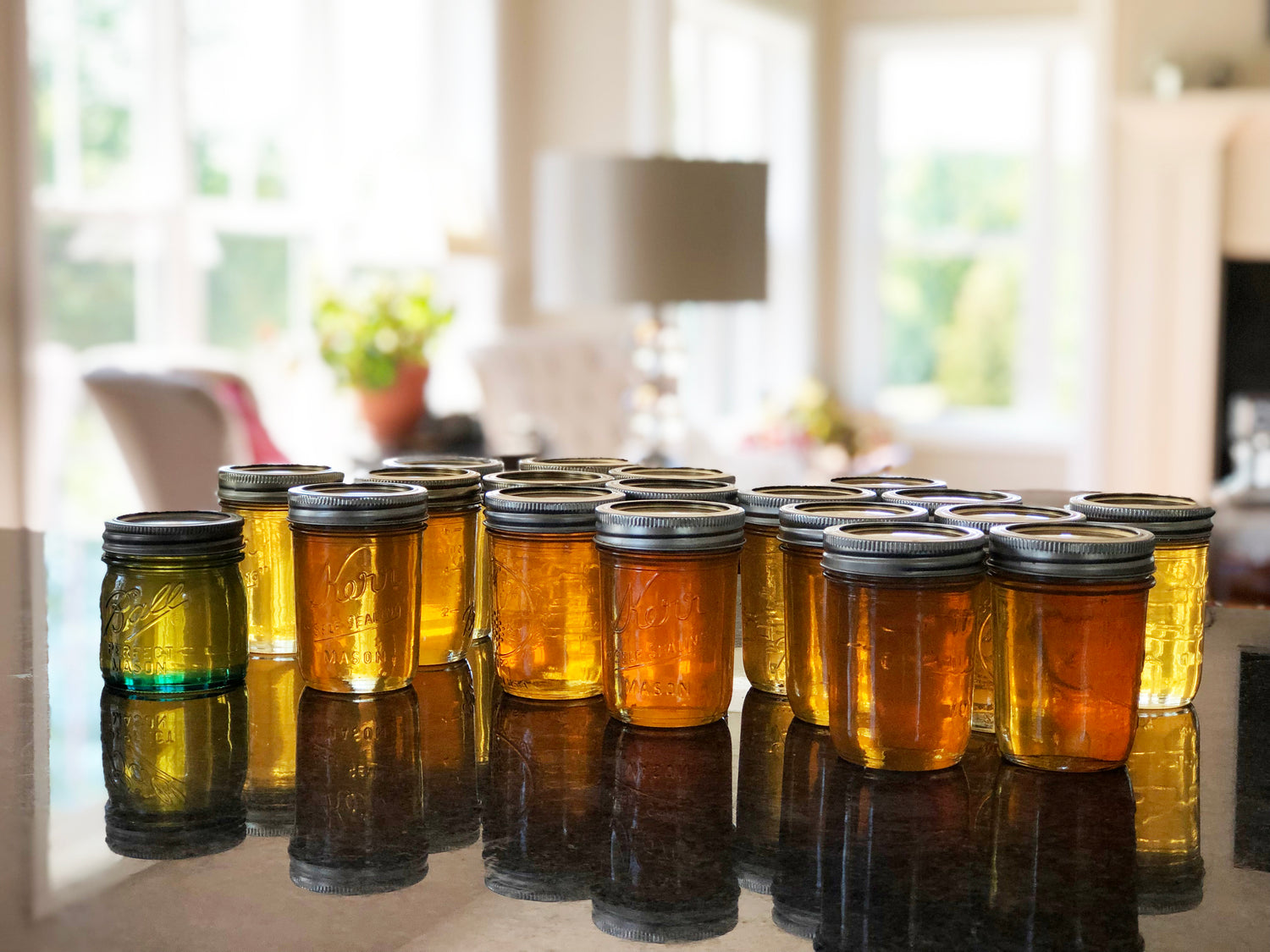
I give my bees a "mostly" organic farm to live on, plenty of space to expand when needed, and supplementary food during lean times. I also always monitor for Varroa mites and take necessary action if required. In return, they give me increased yields in the orchard and garden, plenty of honey, and peace.
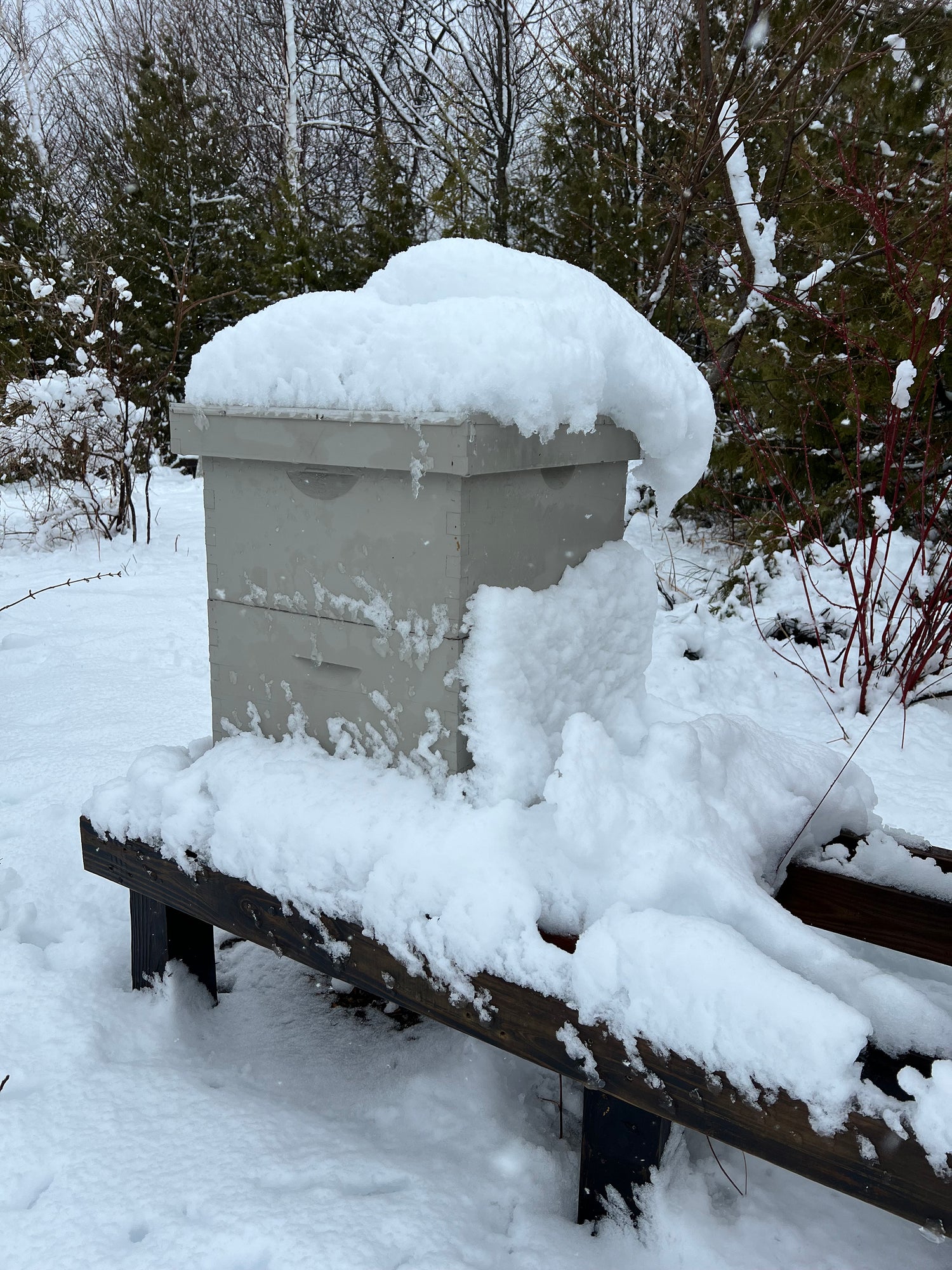
This photo is a typical February day in northern Door County Wisconsin. This hive set up was from my first year of keeping bees and I just like the photo. Its been a very cold and windy month on the eastern shore of Green Bay this year. My bees are alive so far. They are tucked in on the south side of a cedar thicket. I keep the entrances clear. I remove the mouse guards regularly and clear the screened bottom board of dead bees. Bees need fresh air. Moisture in winter is bad for bees up here. I also have an access door on my moisture box so I can look in without opening the top. I use this access to listen to that wonderful hum telling me my girls are alive. I also use this door to feed my bees protein patties when winter and early spring can push my bees to their limits. When I see bees clustering near the top I just slide in a lemongrass protein patty and monitor their consumption. My girls need food to keep the hive warm inside when their food stores run low and the weather doesn’t cooperate to let them forage outside. Early spring in Wisconsin is hard to predict.
